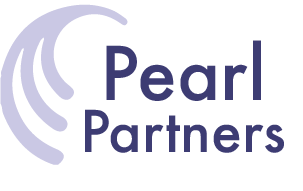One of the things I'm currently working on is leading a team to create disruptive opportunities within the changing healthcare landscape. I can't go into specifics of the work, but in taking people through the experience design and innovation process is always interesting, and similar challenges usually arise. One of them is the typical propensity to learn more and more about what we know today. As anyone who works in this space knows, learning deeply about what exists today will certainly help you to understand the problems, but it will not help to envision a new future.
This propensity is understandable, since most people are in organizations that reward certainty and "knowing the right answer." And of course, we can't go wrong if we know what exists because that information can be proven. Several years ago, Dorothy Leonard and Walter Swap wrote a book called Deep Smarts. In it they outline different types of "smarts" and when they are useful. For example, experts are very useful if you want to quickly come up to speed on the best current knowledge on a given topic. But Leonard and Swap talk about how experts are not useful guides to the future. If we want to change the future, we must be able to challenge our assumptions about it.
In approaching this project, I decided that we needed to engage a couple of Key Opinion Leaders (KOLs) to participate in the process. Rather than the typical approach of interviewing them (which had been done previously) I recruited them to participate on the project along with the team. Their "job" was to participate in the stakeholder interviews to learn along with the team, participate in critiques of what was learned, and participate as subject matter experts as the team came up with new ideas that challenged the status quo.
This approach worked out beautifully. And from it I would build on Leonard and Swap's ideas that the experts are the unreliable guides to the future. In many cases, when the experts are asked their opinions, it is in the context of a discussion about the current state, and then the interviewers project the information onto their thoughts about the future. In one example, one of the KOLs on my team gave feedback to modify one of the new ideas based on a belief he held dear. However, later that week at work, he posed the idea to someone who would be within the target market for the new idea and he found out that his assumption had been wrong. He shared this with the team along with his insights about why the new reality could be true. This insight triggered more changes – as they always do – but they were very different from what we started with.
When I share this story I'm struck by how many people feel that we were lucky that our KOL was "a big enough person" to admit to his blind spot. However, I didn't feel that sentiment from him at all, nor did I see it that way myself. What I saw was that he was genuinely excited to be learning something new within his own field. People become experts because they are passionate about what they are working on, and when they learn something new – even if it overturns a previously held belief – they are excited that they are able to add new insights to their field.
I have published articles and spoken about the topic of selecting and training the right skills for experience design and innovation projects, and many people consider me to be an expert in this area. However, when I wrote my Innovation and Neuroscience chapter which covered the topic in a different way than I had previously, I learned a few things that changed several assumptions I had previously held. I was thrilled, and immediately incorporated my new insights into the work I was doing.
American actor Alan Alda was quoted as saying: "Begin challenging your assumptions. Your assumptions are the windows on the world. Scrub them off every once in awhile or the light won't come in."
And my KOL friend and I would add it's just plain fun.

